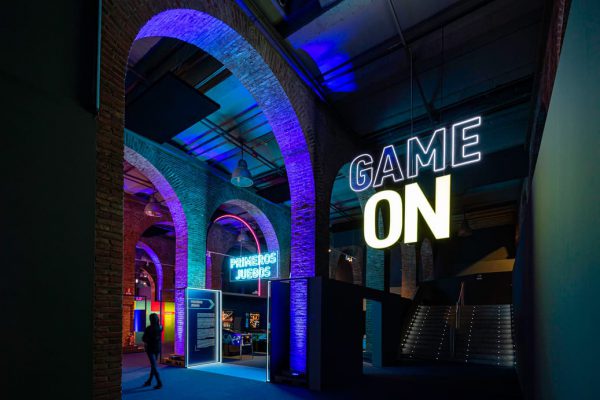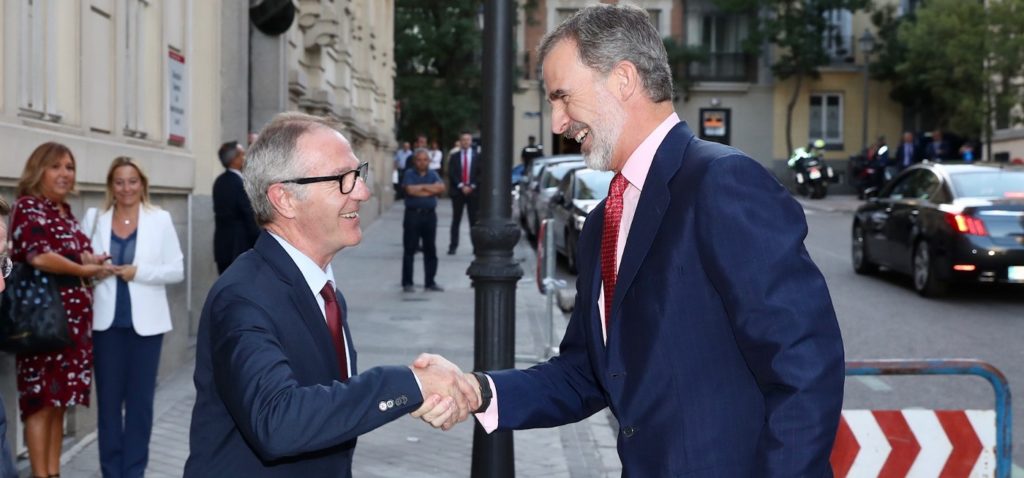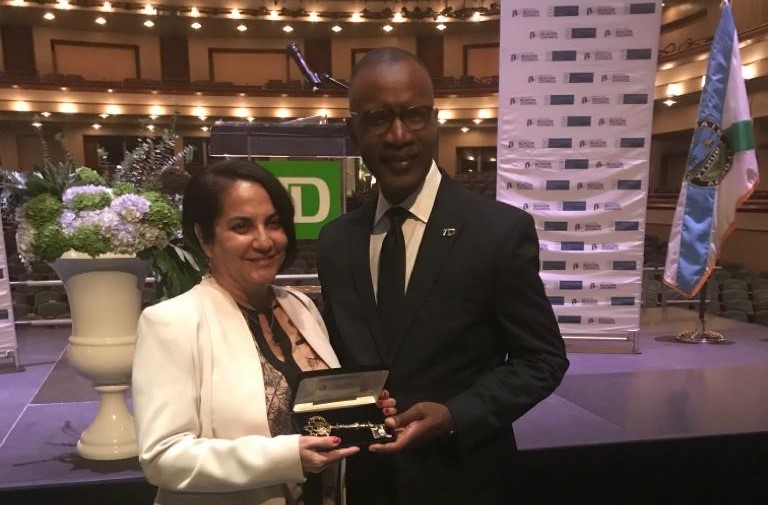IACPOS signs a brilliant 2019

IACPOS signs a brilliant 2019 IACPOS closes 2019 as a year characterized by its expansion both in lines of business already worked on previously and in new ones in which it has penetrated with considerable success, in addition to the evolution to new technologically advanced versions. The Zaragozana ticketing company par excellence has won new clients such as the Madrid Cable Car, the Alcazaba Monumental Complex and Gibralfaro Castle in Malaga, the Cadiz Theaters, the Colmenar Viejo Auditorium in Madrid, the Grec Festival in Barcelona, the Aragon Planetarium, Canal Isabel II Foundation in Madrid and Snowzone in Madrid. In addition to the new projects, many others in which IACPOS had a presence in previous years have been renewed and were very attractive to increase its extensive experience. Some of the most important are the Aljafería Castle in Zaragoza, the Mapfre Foundation, Muncyt, or the Church of San Luis de los Franceses. Regarding the new lines of business that have been implemented in the company, the Totems and Digital Signage stand out, working on projects with Huercal-Overa de Almería, Ripoll and Algemesí, the Interactive Guide contracted with the Ministry of Defense and the Global Management of room to through personnel, established in Canal Isabel II. Other considerable successes achieved by the company throughout 2019 are the new facilities in the Museums and Archaeological Zones belonging to the INAH of Mexico, the renovation with great confidence placed in the solution proposed by IACPOS by the new management team of The Alhambra, the consolidation of our presence of more than 10 years in Parque Reunidos with new projects, and the collaboration with leading companies in Spain in projects of reference institutions. However, perhaps one of the most important events of the year and which fills us with pride was the commemoration received by Miami-Dade, granting us the key to the County. This fact represents a distinctive element that rewards those companies that have opted to generate business opportunities within the American county. Regarding the certifications that certify the good work of IACPOS, ISO 9001 has been obtained and ISO 27001 and Criminal Compliance (UNE 19601) have been renewed.
Madrid SnowZone starts with the new IACPOS ticket sales system

Madrid SnowZone starts with the new IACPOS ticket sales system The indoor ski resort in Madrid Snozwzone has undergone a remodeling that has been focused on improving the customer experience. This improvement has taken place both in and out of the snow season. The works, which are part of a transformation process in which Intu Xanadú has invested 18 million euros, completely change the visitor’s perception thanks to more functional and pleasant facilities. For this enormous remodeling, we are proud to announce the trust placed by Intu Xanadú in IACPOS for the implementation of the new comprehensive solution for the sale and reservation of tickets, activities and products. IACPOS took on this project from the outset as a challenge due to its complexity, due to the management of ski instructors and slopes, class schedules, equipment rental, sale of merchandising and restaurant products, management of group reservations and schoolchildren, etc., but as Ashley Tisdale stated: “The only way to grow is by challenging yourself”. Tickets are now available to buy through the web, and together with the online sales system we are pleased to announce the launch of the new IACPOS box office. As Mr. Javier Villar, general manager of Madrid SnowZone, has recently pointed out: “We are very happy to be able to present this remodeling within the established deadline. It has been a few intense months whose main objective has been to improve the ski resort”. (http://www.madridsnowzone.com/blog/noticias/madrid-snowzone-culmina-su-remodelacion-y-reabre-sus-instalaciones/) A spectacular new evolution of the ticketing system at the box office For this project, SnowZone will have the new evolution of the IACPOS box office ticket sales system. It is a web application developed in Angular 7 with the following advantages: TypeScript: Ease and optimization in application maintenance Ease when making decisions A stable future path: Long-term framework Web Components: Ease of conversion into native web components Great tool holder This new evolution of the box office will continue to have the possibility of working in local-remote mode, which will make it possible to sell despite network outages. This new evolution is a development based on API REST, with some of the following advantages: Client/server separation Independence of technologies / languages Reliability, scalability, flexibility Improvement in user experience In the following image we see the payment screen with the invoice selection. 👉🏻 The new IACPOS Box Office has been developed with C# to control the peripherals on which the box office application is executed. This evolution in the box office follows the same pattern as the online ticketing system, aligned with the web developed in Angular 7 as well. 👈🏻 Here we see the online ticket sales system for the purchase of ski passes. Madrid SnowZone, the only indoor station in Spain Madrid SnowZone is a unique space in Madrid where you can practice your favorite sport throughout the year. The only indoor court in Spain and one of the largest in the world, located in the Intu Xanadú Shopping and Leisure Center. It is located in a perfect geographical enclave, in the municipality of Arroyomolinos, just 20 minutes from Madrid, offering its visitors 18,000 m2 dedicated to the world of snow, both for expert skiers and for those who want to start in this sport. It has a main slope with a length of 250 meters, 55 meters wide and a slope of more than 25%, and another slope of less slope of 100 meters long and 40 wide, perfect to start skiing. Among its complementary leisure activities are tobogganing and snowbikes. For the little ones, it has the Snowgarden children’s snow garden, where children can enjoy various activities that stimulate their psychomotricity. In addition, it has a leisure offer for all ages that goes beyond the track itself. It has the largest indoor zip line in the world (over 200 meters) and Glacial Minigolf, with 18 game holes that run between 65 life-size replicas of polar animals. This variety makes the complex an excellent leisure option throughout the year and especially during the Christmas holidays. (http://www.madridsnowzone.com/blog/noticias/mas-de-2000-personas-acuden-a-la-fiesta-de-reinauguracion-de-madrid-snowzone/)
The Game On exhibition arrives for the first time in Spain

The Game On exhibition arrives for the first time in Spain Fundación Canal opens today, November 29, the GAME ON Exhibition, the largest international video game exhibition, from the 70s to today. The largest immersive video game exhibition designed for the enjoyment of all audiences, whether players, nostalgic or curious of all ages, arrives in Spain for the first time. It will take place in the Sala Castellana, Paseo de la Castellana 214, Madrid and will be open to the public until May 31, 2020. IACPOS once again takes a qualitative leap in the development of its professional experience in terms of events of this nature. Tickets are now available to buy through the web, where you can access various discounts. There is a variety of prices and schedules between weekdays, holidays and weekends. We are very pleased to announce the trust placed by an entity such as the Canal Foundation “a benchmark when it comes to generating knowledge, both in the field of art, culture, innovation and the environment”, in our company to the implementation of the comprehensive ticket and access sales solution, as well as for the global management of the venue and visitor service. A spectacular exhibition space The exhibition is located in a unique location, an area of 2,500 meters of surface in the underground water tank located in the Parque Cuarto Depósito of Canal Isabel II. The space preserves the image of an old cistern, with its 144 brick arches that rise more than 7.5 meters high. A design by the Smart and Green Design studio based on architecture built with lines of light. Video game culture Visiting Game On is a fantastic plan for families, educational and fun. An immersive tour where you can enjoy history and nostalgia in the arcade games section with Pac-Man, Pong or Donkey Kong, a scene from the present and the future with current favorites such as Nintendo Switch, PlayStation 4 or Xbox 360 and some of emerging technologies like virtual reality and the Oculus Rift. Game On is a traveling exhibition created by the Barbican, a London institution dedicated to culture, and opened in 2002 at the Barbican Centre. In these almost 20 years it has been visited by more than three million people. The largest version of Game On has come to Madrid and, in addition, it has been adapted with the inclusion of the Spanish games Gris (Nomada Studio), Rime (Tequila Works) and Castlevania: Lord of Shadows (Mercury Steam). Last Wednesday, the exhibition was presented to the media, where the president of Fundación Canal and Minister of the Environment, Territorial Planning and Sustainability of the Community of Madrid, Paloma Martín, highlighted the importance of the video game as a current cultural manifestation and as a engine of the economy: “The Community of Madrid is home to 26% of Spanish companies in the sector, 31% of jobs and 36% of turnover”. The video game is considered the largest cultural industry in the world in terms of turnover, with a global sales figure of 120,000 million euros per year. In this image: D. Patrick Moran (Curator of the exhibition), Dª. Paloma Martín (President of the Canal Foundation), Ms. Eva Tormo (Managing Director of the Canal Foundation), Mr. Jesús Albendea (Managing Director of Canal Isabel II) and Mr. Cristian Ruiz (Director of Exhibitions).
María Cristina Masaveu Peterson Foundation opens its doors

María Cristina Masaveu Peterson Foundation opens its doors Visit by His Majesty the King of Spain A new and innovative space dedicated to culture opened its doors last October in the capital with the presence of King Felipe VI. The María Cristina Masaveu Peterson Foundation opens its headquarters in Calle Alcalá Galiano. This new space will publicize the work of cultural promotion and the commitment to patronage that it has carried out over the last 13 years. After a brief welcome by the president of the foundation, Fernando Masaveu, the King, accompanied by 40 other guests, including the acting Minister of Culture, José Guirao, and the president of the Principality of Asturias, Adrián Barbón, paid a visit for the exhibition, where more than 117 works of art are collected. For 35 minutes, the King, accompanied by the authorities of the foundation and the mayor of Madrid, José Luis Martínez Almeida, delighted in the works while an expert guided him through the rooms. MARIA CRISTINA MASAVEU PETERSON FOUNDATION The María Cristina Masaveu Peterson Foundation is a private non-profit cultural Spanish foundation of general interest. Created in 2006 by María Cristina Masaveu, it was born with the vocation to promote, within the tradition of patronage of the Masaveu family, culture, training and scientific research at a national and international level. It presents a selection of more than a hundred pieces from the Masaveu Collection of 19th-century Spanish painting, which includes works by Goya, Federico de Madrazo, Sorolla, Zuloaga, Ramón Casas and Anglada Camarasa, among others. NEW HEADQUARTERS OF THE FOUNDATION The new headquarters of the foundation has multipurpose rooms, an auditorium with capacity for 150 people, terraces, patios and administrative offices. The four-story structure, which was also mostly restored, has wooden corridors, glass railings and rooms set in sober blue and gray colors. Without a doubt, the trust placed in IACPOS by the Foundation to carry out the comprehensive ticket sales system, as well as the access control solution, represents a stimulus for the company, as well as a challenge to improve the experience and visit quality. The exhibited sample is made up of paintings of great historical value, which had not even been exhibited before to the public. In fact, the works are part of the Masaveu Collection of 19th-century Spanish painting, one of the most important in the world. Among the most outstanding authors of this collection are artists of the stature of Goya, Federico de Madrazo, Sorolla, Zuloaga, Ramón Casas or Anglada Camarasa, among others. But not only painting will take over this new cultural space. Sculpture will also be present. In fact, the foundation has placed the Silence sculpture in one of its main courtyards, a relief 14 meters high, whose author is Jaume Plensa, who was also present at the event. The exhibition, curated by Javier Barón, starts with the works of Francisco de Goya and extends to Catalan modernism and postmodernism. The exhibition shows the richness and variety of the paintings and reveals the evolution that took place in art throughout that century through the most outstanding Spanish artists.
IACPOS receives the key to Miami – Dade County

IACPOS receives the key to Miami – Dade County IACPOS trajectory recognition On November 4, 2019, IACPOS was awarded the key to Miami – Dade County: This is an encouragement to continue making efforts. It was an event in which we participated with some of the most important foreign companies in different sectors where we were able to talk with them and learn about the various projects that are going to be carried out. The key to the county was collected by Ms. Mayté Suárez, managing partner and alma mater of the IACPOS project since its inception. She is currently the company’s CTO, who attended with the company’s CEO, Mr. Santiago Castillón. The delivery of this key is a distinctive element rewarding those companies that have opted to generate business opportunities within the American county. Some of the sectors represented were logistics, technology, commerce, entertainment, manufacturing and health. A badge that has been received on other occasions by personalities such as Florentino Pérez, representing the institution Real Madrid C.F. or Paloma Picasso, daughter of the Spanish painter Pablo Picasso. Without a doubt, this represents a recognition that highlights a trajectory and an effort of more than 7 years in North America, which adds to the already prestigious IAAPA certificate, obtained by the company in 2014. Currently, Miami – Dade, due to its privileged geographic location, is presented as one of the key places in the company’s international strategy, even more so after having been awarded the ticket sales and access control system of the National Institute of History and Anthropology of Mexico. Why invest in Florida? Its GDP amounts to 1,036,323.2 million dollars (year 2018). It is the 4th economic power in the US after California, Texas and New York. Florida’s GDP represents 5% of the national GDP. Florida’s unemployment rate in July 2019 was 3.30%, three tenths below the national average, which is 3.60%. In Florida, 23.3% of the population (4,802,698 people) speak Spanish. The predominant spoken language in Miami-Dade County is Spanish, where 66.8% of the population is Spanish-speaking, 28.1% have English as their mother tongue, 4.3% French and 0. 5% Portuguese. One of the sectors with the greatest potential is Information Technology: Florida is home to more than 29,000 companies in this sector. Why Miami-Dade? Miami-Dade County is the preferred gateway for many Spanish companies in their decision to establish themselves in the US, both as a base for their operations in the US market and, above all, for the market Latin American and Caribbean. Nearly two-thirds of the Spanish companies that established themselves in the southeastern United States in recent months chose Miami-Dade County as their destination. There are many reasons that make Miami-Dade a unique location. Added to its privileged geostrategic position is the fact that it offers a business environment with a favorable business climate fostered by local authorities and supported by a multicultural and multilingual workforce that facilitates trade relations with Spain and the rest of the world. The GDP of Miami-Dade has experienced a growth of 2.8% in the period 2012 – 2017, exceeding the state and national average and reaching 153,600 million dollars in 2017. Growth prospects in the coming years are optimistic, with a continued reduction in the unemployment rate and better economic performance. The exponential growth that the city has experienced over the last decade has led to a significant increase in the cost of living. Although the average salary of the inhabitants is lower than what could be found in other large cities, such as New York, the absence of income taxes manages to equalize purchasing power. The active population of the county reaches 1,392,345 people. According to June 2019 data from the Employment Office, 96.1% are employed (1,337,460 people), placing the unemployment rate at 3.9% (54,885 people in total).
Anti-resale solution: nominative tickets against fraud

Anti-resale solution: nominative tickets against fraud There is a great generalized problem in the whole world with the reselling of tickets in different events and spaces. They are usually Museums, Leisure Centers, Monuments and Shows, with a high volume of visitors and with difficulties in obtaining a ticket for certain days, combined with the limitation of space in the venue and the importance of the event itself. This leads to fraudulent mediation and intermediation, and even malpractice by professionals in the sector, who generate extra business with resale techniques and, in turn, generate problems for both the property and the visitor. Although more and more spaces have modernized their ticketing system, the problem continues to exist, as this does not prevent fraud by those who want to benefit from the property and, above all, by the unsuspecting visitor who does not know in the end if they are being scammed (paying more), or what is worse, that you find yourself in the situation of having paid, that you cannot access the premises. The anti-resale of tickets, a concern of the Ministry of Culture This issue has also been addressed by the Ministry of Culture, which together with the autonomous communities have given the green light to a report on the resale of tickets which, among other solutions, proposes its prohibition in the event that it is a resale of a lucrative nature and that these are nominative. Minister José Guirao explained to the media that the regional representatives have “agreed” that there must be “a general framework” to address this matter, although he has clarified that “we will see if it is a law or a decree law”. For the Minister of Culture of Andalusia, Miguel Ángel Vázquez, the nominative sale that is taking place in the Alhambra in Granada is having “very good results and should be an example to imitate”. A system of nominative tickets for the Alhambra in Granada IACPOS has launched in Alhambra de Granada, an anti-resale plan with a System of nominative tickets: the tickets obtained at the box office and online, will bear the name of the buyer, who will have to be the one who attends, identifying himself at the door with the corresponding identification , which means that visitors who are not ticket owners will not be allowed access. It prevents the tickets that are put up for sale from falling into the hands of people for speculative purposes. It guarantees that it is the buyer who finally attends the event and not another. In this way, resale is clearly penalized. The IACPOS nominative ticket module allows the possibility of admitting a person, but this decision must be made before making the purchase. The buyer must indicate the name and surname of a titular assistant, who could be a different person from the buyer, so there will be no problem accessing the site. In this article we explain the Success Story of the comprehensive ticket sales solution that we have implemented in the Alhambra in Granada. For years, the Alhambra had an obsolete ticketing system that caused endless queues, as well as an outdated website that did not allow the purchase of tickets through mobile devices. We have implemented a system that allows you to manage the entire ticket sales process, available 24 hours a day, seven days a week, both from the web, mobile or tablet. As we mentioned before, the Ministry of Culture of the Spanish State and the autonomous communities have proposed a nominative ticket solution as an anti-resale plan. We will closely follow the next steps that are being taken.
How to implement loyalty plans in your ticketing system

How to implement loyalty plans in your ticketing system Improve the customer experience and increase their loyalty The web pages of the reservation systems must be one hundred percent responsive. The tourist today lives in a completely mobile environment. More than half of the inquiries received by online reservation systems are made from mobile phones or tablets. This is in line with the rest of the searches, not just the tourist ones. The mobile environment has already displaced desktop computers.Ticketing processes are a crucial element for both the visitor experience and the management of the center. It is essential to optimize the online sales processes to facilitate the purchase of tickets and favor that you have a positive experience at all times with the center. Today, more and more cultural and leisure organizations are realizing the need to transform digitally in order to meet the new demands of their audiences. The use of new technologies has made it possible to implement different loyalty plans to maintain a relationship with customers. In particular, ticketing systems have become increasingly important for visitors. Building visitor loyalty is one of the most important tasks that cultural and leisure centers must carry out. However, a traditional business loses an average of 28% of its customers annually, simply and simply by failing in something basic: customer service in the quality of the visit. Customer loyalty is a challenge for any venue, considering that it is cheaper to retain a customer than to find a new one. It is a long-term process that is based on the value perceived by the customer regarding our product. It’s not just about the price; In reality, according to recent studies, loyal customers are less sensitive to this factor, because current customers are interested in other issues such as service quality. This process must be understood as a comprehensive system that encompasses before – during – and after the visit. The visitor must be accompanied, all the processes are facilitated and they are helped to live a unique and unforgettable experience. Regardless of the BI solution as a tool for Data Analysis, for example, IACPOS has a tool for reviewing reports and creating statistics called SAE (Automated Statistics System). From the Reports and Statistics Module, a complete follow-up of the exhibitions, activities and events created with this tool is carried out, from the moment they were created until their completion, as well as a complete breakdown of the traceability of the operations carried out. about each of the entrances and venues involved, from the time they were reserved until they entered the center. From this tool, all the necessary reports are obtained for the economic and statistical control of the solution, which translates into:Personalization: By knowing our customers better based on data and not assumptions, we can create personalized actions that are more effective. For example: more interesting incentives, promotional campaigns, value recommendations, personalized customer service, content tailored to needs, offline actions based on location data, mailing actions, etc.Real-time improvements: Thanks to real-time data analysis, the venue can react in a very short time, either to correct errors or launch actions that meet the expectations of its visitors. With IACPOS all the data is collected and sorted automatically to be able to obtain any kind of reports in real time, both on ticket sales and income as well as everything related to the public. Knowing the degree of visitor satisfaction allows changes and modifications to be made around future customer loyalty strategies. What do you need to implement a loyalty plan in your ticketing system In short, your ticketing system should allow you to implement a loyalty plan with which: Collect measurable results. Identify your customers’ preferences to increase profits. Retain your customers longer. Enrich knowledge through the right questions. Focus on your best customers. Personalized customer service thanks to our cultural call center service. Make decisions and save time and costs. If you want to know how at IACPOS we can help you choose the most suitable ticketing tool for your venue and start up a loyalty plan for your customers, do not hesitate to contact us. We will be happy to make you a personalized proposal.
